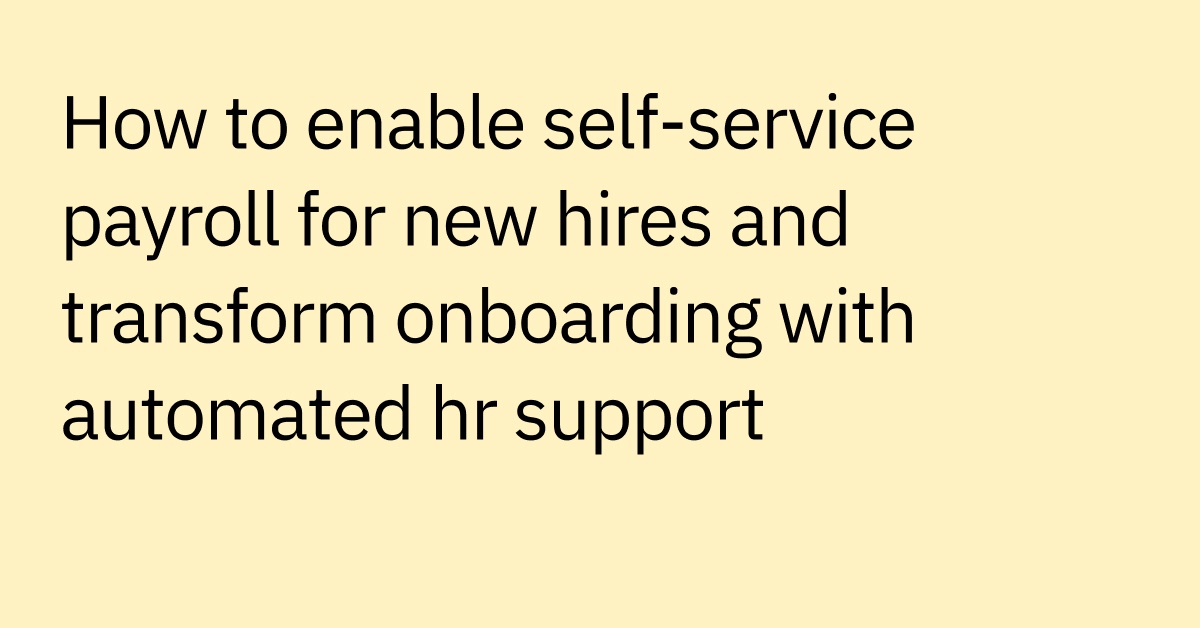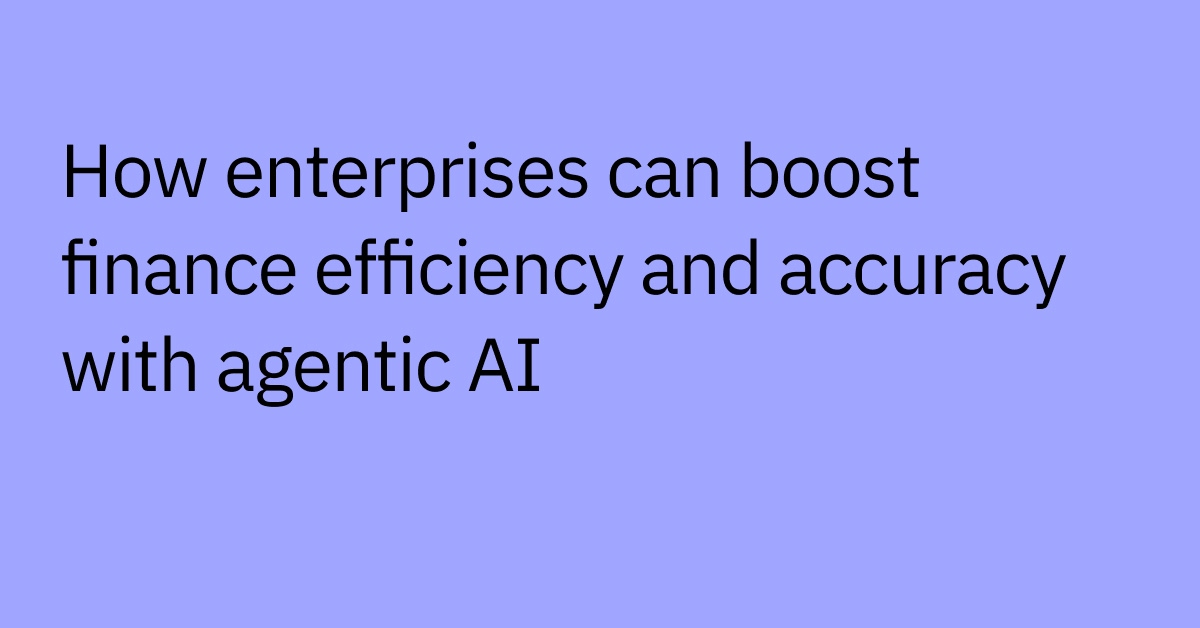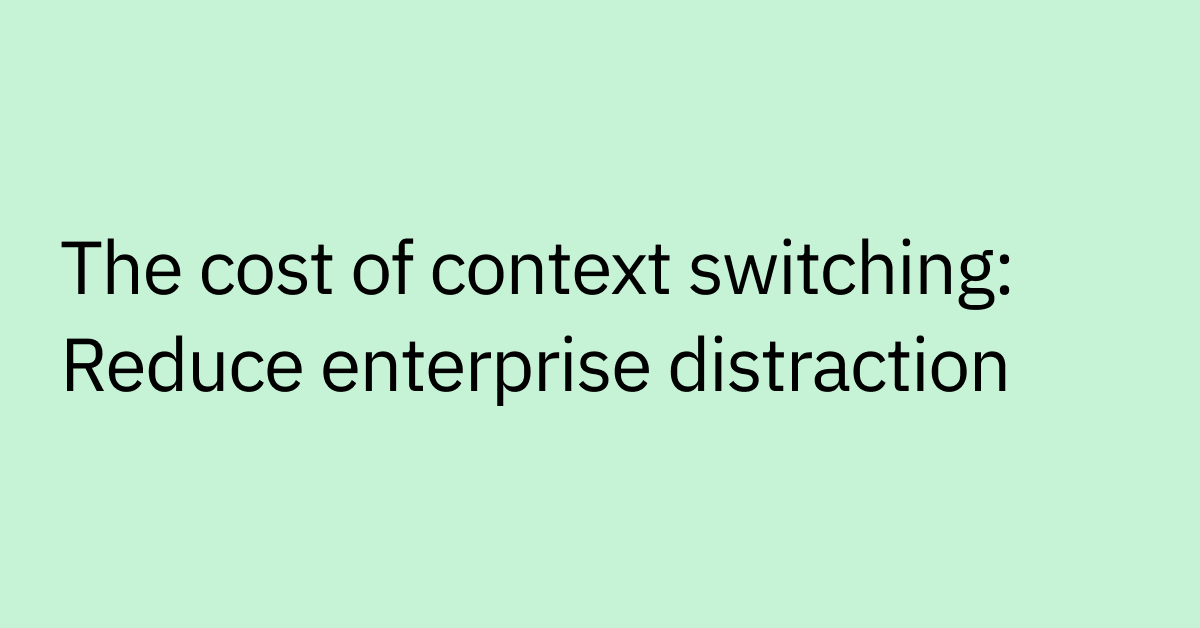Table of contents
Highlights
- Centralized intake and routing makes sure every employee request lands in the right place without manual handoffs or missed tickets.
- AI-powered automation provides instant resolution for routine inquiries, reducing case volumes while improving response times.
- Compliance and security features protect sensitive employee data (PII) with role-based access, audit trails, and enterprise-grade controls.
- Analytics and reporting provide real-time visibility into case trends, resolution rates, and team performance to drive continuous improvement.
- Integrations with existing HRIS, ITSM, and collaboration tools create connected experiences without forcing employees to learn new systems.
Benefits questions, policy clarifications, leave requests, onboarding tasks…the list never ends for your HR team. Just imagine – how much more could they do if they weren’t being bombarded with the same questions?
Fifty-seven percent of HR professionals’ time is reportedly spent on administrative tasks. This can lead to a mountain of requests, many of which deal with the same type of question or issue. And maintaining consistent service to address all of them can be an entirely different beast, especially if you operate globally.
The culprit is often systems that force manual triage, take time, and limit transparency, leaving both employees and HR reps frustrated.
HR case management software helps put a stop to all of that.
These platforms centralize requests, automate workflows, prioritize compliance, and deliver analytics to proactively improve the employee experience. We'll explore how by bringing in the right solution, you can reduce ticket volumes, resolve issues that do come in more quickly, and free up your team to focus on culture, retention, and strategic initiatives.
Learn more about how AI can transform your HR operations with our guide to leveraging AI in HR.
At a glance: 9 best HR case management systems
Company Name | Use Case | Category |
Moveworks | Enterprises seeking instant, automated HR support across global workforces | AI-powered employee support platform |
ServiceNow HR Service Delivery | Large organizations that need comprehensive ITSM and HR integration | Enterprise service management |
Workday HR Service Delivery | Companies that already use Workday HCM and are seeking seamless case management | HCM-integrated case management |
Dovetail | Organizations that manage sensitive investigations and detailed documentation | Employee relations case management |
HR Acuity | HR teams prioritizing workplace investigations and compliance tracking | Employee relations and investigations |
Freshservice HR Service Delivery | Midsize companies that want quick deployment and intuitive tools | HR service management |
UKG | Enterprises with heavy documentation needs and existing UKG systems | Workforce management and HR |
Applaud HR | Organizations focused on personalized employee experiences | Employee experience platform |
Deel | Companies that manage international teams with complex regulatory needs | Global workforce management |
What is HR case management software?
HR case management software is a centralized platform that can handle employee inquiries from intake through resolution. As your HR team's “command center,” it can track requests, route them to the right people, and help keep things from falling through the cracks.
HR case management systems are built for the unique needs of your people operations. These aren’t generic helpdesk tools. They prioritize confidentiality for sensitive matters, maintain compliance with employment regulations, and link directly with your documentation repositories, files, and knowledge bases to share source-of-truth company policies and benefits information.
With AI in the mix, these platforms are able to automatically escalate cases based on urgency, create self-service resolution for common questions, and provide real-time insights into trends and bottlenecks.This moves HR from reactive firefighting to proactive support.
Key features that drive HR efficiency
Choosing a solution with the right capabilities for your teams can dramatically cut resolution times, boost satisfaction, and maximize team efficiency. Look for:
- Automated ticket routing: Intelligent systems analyze incoming requests and direct them to the appropriate team member or department based on issue type, urgency, and workload, which is especially helpful for reducing manual sorting.
- Unified knowledge access: Instead of waiting for HR to respond to support tickets, employees can get instant answers to policy questions, benefits inquiries, and FAQs from a centralized knowledge source.
- Analytics and reporting: A real-time dashboard can help you see where cases get stuck, which issues keep recurring, and how quickly your team resolves requests, all of which can lead to data-informed actions.
- Compliance and security: Enterprise-grade security protects sensitive employee data through role-based access, audit trails, data encryption, and adherence to standards like GDPR, SOC 2, and ISO 27001.
- Integrations: Connect your existing tech stack with HRIS, service desk, and collaboration tools so employees get what they need without jumping between systems.
- Self-service portals: Employees can check the status of their requests, access the resources they need, and resolve simple issues without going back and forth with HR.
How AI and automation enhance HR case management
Manual triage doesn't scale. AI-driven HR case management tools use intelligent routing, natural language understanding, and predictive analytics to resolve issues before they escalate.
When employees ask questions conversationally (and in their preferred language), cases reach the right people quickly, with the system learning from every interaction to keep improving on its own. This can lead to fewer escalations, faster resolutions, and HR teams freed from repetitive admin and triage work.
9 enterprise HR case management solutions
Not every HR case management software is the same (or is a perfect fit for every enterprise).
Here are some of our top HR case management software picks, and how they can best serve:
1. Moveworks — Instant, AI-powered HR support
Moveworks provides enterprise-grade automation and employee support built specifically to streamline work across HR, IT, finance, and other departments. The platform combines an agentic AI Assistant for immediate impact with Agent Studio, a low-code environment that lets you quickly build your own custom automations.
Moveworks enhances what the other providers in our list bring to the table.
Key features:
- AI-driven resolution, not just routing: Moveworks customers see many HR inquiries automatically resolved in seconds, handling everything from PTO requests to benefits questions without human intervention.
- Existing ecosystem integration: The platform works across existing systems, including Workday, ServiceNow, UKG, Slack, and Microsoft Teams, to keep everything within reach in one place.
- Multilingual, enterprise-ready AI: Natural language understanding in 100+ languages supports global workforces with consistent employee experiences wherever they are.
- Continuous learning: The system improves accuracy and personalization over time through contextual learning, adapting to your company's unique policies and terminology.
- Security and governance built for the enterprise: SOC 2 Type II, GDPR, ISO 27001, and enterprise-grade compliance are built into the platform.
Whatever your current platform, Moveworks helps your HR team stop playing ticket whack-a-mole. It can handle routine cases automatically, turning reactive support into proactive (and better) employee experiences — including your HR team, who can finally have bandwidth for strategy and culture.
2. ServiceNow HR Service Delivery — Enterprise-scale workflows across all functions
ServiceNow HR Service Delivery brings the company's IT service management capabilities to human resources. The platform offers case management, knowledge bases, and workflow automation designed for larger organizations.
Key features:
- Multi-department management that coordinates HR, IT, facilities, and other teams through connected workflows
- Knowledge management system with AI-powered content recommendations and search
- Self-service employee portal with personalized dashboards
- Integration with ServiceNow's broader ecosystem for enterprise-wide automation
Ideal use case: ServiceNow works well for large organizations that already use it for IT operations or are seeking more in-depth service management across multiple departments.
3. Workday HR Service Delivery — Seamless HR case management within Workday
Workday HR Service Delivery provides native case management capabilities within the Workday Human Capital Management suite. This integration eliminates data silos and creates an overall connected employee experience.
Key features:
- Native integration with Workday HCM eliminates duplicate data entry and maintains system-of-record accuracy
- Employee self-service portal embedded directly within the Workday interface
- Knowledge articles and guided assistance for common HR questions
- Analytics and dashboards that use Workday's reporting capabilities
Ideal use case: HR Service Delivery is for companies already invested in Workday HCM that need case management that integrates with the existing system.
4. Dovetail — Advanced lifecycle tracking for complex HR cases
Dovetail specializes in managing more challenging, long-running HR cases that require detailed documentation and careful workflow management. As such, it’s good at handling sensitive investigations, accommodations, and employee relations matters.
Key features:
- Case lifecycle tracking from intake through resolution and follow-up
- Customizable workflows that adapt to different case types and organizational needs
- Compliance tools, including audit trails and regulatory reporting
- Collaboration features that coordinate multiple stakeholders while maintaining confidentiality
Ideal use case: Organizations that manage sensitive investigations, accommodation requests, or other cases that require detailed documentation and compliance tracking may find Dovetail useful.
5. HR Acuity — Employee relations and investigations made simple
HR Acuity is designed for employee relations case management, providing specialized tools for workplace investigations, complaints, and compliance matters.
Key features:
- Investigation management with structured workflows and documentation templates
- Reporting dashboards that track investigation trends, time-to-resolution, and compliance metrics
- Secure document storage with role-based access controls
- Integration capabilities with major HRIS platforms for employee data synchronization
Ideal use case: Instead of forcing investigations into generic ticketing systems, HR Acuity provides specialized tools designed for employee relations, workplace complaints, and compliance tracking.
6. Freshservice HR Service Delivery — Fast, user-friendly HR automation for midsize firms
Freshservice brings its intuitive IT service management approach to HR with a platform designed for quick deployment and ease of use.
Key features:
- User-friendly interface that requires minimal training for HR teams and employees
- Automation capabilities and a self-service portal with a knowledge base and request tracking
- Integration with popular collaboration tools and HRIS platforms
- Reporting and analytics for tracking performance metrics
Ideal use case: Don't want a six-month implementation? Freshservice is built for midsize companies that need easy-to-use HR tools to be deployed quickly.
7. UKG — Document-heavy processes streamlined for compliance
UKG provides workforce management and HR solutions with strong document management and compliance capabilities.
Key features:
- Document management for employee files, policies, and compliance records
- Workforce integration that connects case management with scheduling, time tracking, and payroll
- Compliance workflows designed around regulatory requirements and audit preparation
- Analytics focused on workforce management and compliance metrics
Ideal use case: UKG can help enterprises with heavy documentation needs, but especially those that already use UKG for workforce management.
8. Applaud HR — Personalized employee portals powered by AI
Applaud HR combines case management with AI-powered personalization to create engaging employee experiences.
Key features:
- AI-powered recommendations that personalize content and resources for each employee while maintaining brand voice
- Customizable employee portals with role-based access and personalized dashboards
- Engagement tools, including surveys, feedback mechanisms, and recognition features
- Analytics focused on employee engagement and experience metrics
Ideal use case: Organizations prioritizing personalized employee experiences and engagement alongside traditional case management may benefit from Applaud HR.
9. Deel — Global workforce compliance and HR case support
Deel specializes in supporting global, distributed workforces with built-in compliance for international employment regulations.
Key features:
- Global compliance automation covering 150+ countries with localized employment laws
- Multi-country payroll integration and benefits administration
- Case management for cross-border HR inquiries and compliance questions
- Self-service portals available in multiple languages and currencies
Ideal use case: Deel can help companies manage international teams with multi-country regulatory requirements.
How to evaluate and choose HR case management software
When comparing tools, use these factors to help guide your decision:
- Integration and compatibility: Systems should connect with your existing HRIS, ITSM platforms, and collaboration tools. Look for APIs and pre-built connectors that minimize custom development to get you up and running faster.
- Security and compliance: HR is a gatekeeper for sensitive employee information. As such, data protection capabilities, including encryption, role-based access controls, audit trails, and compliance with standards like GDPR, SOC 2, and ISO 27001, are a priority.
- Scalability and flexibility: If you’re scaling, you need to make sure your solution scales along with you, adapting to changing business needs on the fly.
- User experience: A hard-to-use system may prevent adoption. Find a solution that’s intuitive and provides an overall pleasant user experience.
- Multilingual and global support: If you operate across multiple regions, your platform should support localization and location-specific compliance requirements.
- AI-enabled automation: Automating what you can is really the goal here. Look for systems that offer smart routing, natural language processing (NLP), and self-service capabilities that let your employees help themselves.
Measuring ROI and success
Successful HR case management can lead to reduced overtime costs, fewer compliance penalties, higher adoption of self-service, and improved employee satisfaction scores.
Track these metrics to show success and justify continued investment:
- Case resolution time: Measure how quickly cases move from submission to resolution, with separate tracking for different case types and difficulty levels.
- First-contact resolution rate: Track the percentage of cases resolved during the initial interaction without escalation or follow-up.
- HR workload reduction per FTE: Calculate how automation and self-service reduce the number of cases requiring human intervention per team member.
- Employee satisfaction: Monitor satisfaction scores through post-resolution surveys and track those trends over time.
- Self-service adoption rate: Measure the percentage of inquiries resolved through self-service channels versus those that require HR intervention.
- Compliance and audit-readiness: Track documentation completeness, policy acknowledgment rates, and audit preparation time.
It’s essential to measure your KPIs before implementing a solution. That way, you’ll have a baseline to measure whether and how well your platform solution is working.
Transform HR case management with AI-powered solutions
HR shouldn't have such a heavy administrative load that it prevents them from focusing on the people initiatives that drive your business forward, while employees shouldn't wait days for simple case answers. HR case management can help.
AI-powered solutions like Moveworks can take case management further by providing:
- Automated routing and escalation for complex cases
- Multilingual support at scale, where employees can use everyday, conversational language (in their preferred language)
- Insights that improve the employee experience
- A more connected experience, as it works alongside your existing case management platform
Ready to see how HR case management can improve employee experience and streamline repetitive HR tasks? Check out our AI-powered HR support solutions today.
Frequently Asked Questions
Modern HR case management platforms connect directly with collaboration tools, letting employees submit requests, track cases, and access answers without leaving Slack or Teams. This creates a seamless, familiar experience and increases adoption.
Advanced AI goes beyond rules-based automation or chatbot tools by understanding natural language and intent to resolving many inquiries instantly. This helps to deflect a significant portion of routine cases, reducing HR workload while improving employee response times.
Pricing varies by vendor but often follows per-user or enterprise license models. Enterprises should consider ROI holistically — factoring in productivity gains and reduced manual workload alongside subscription costs.
Enterprises should consider platforms with multilingual AI support, regional compliance coverage like GDPR, and scalable infrastructure. This ensures consistent employee support while meeting local regulatory requirements.



